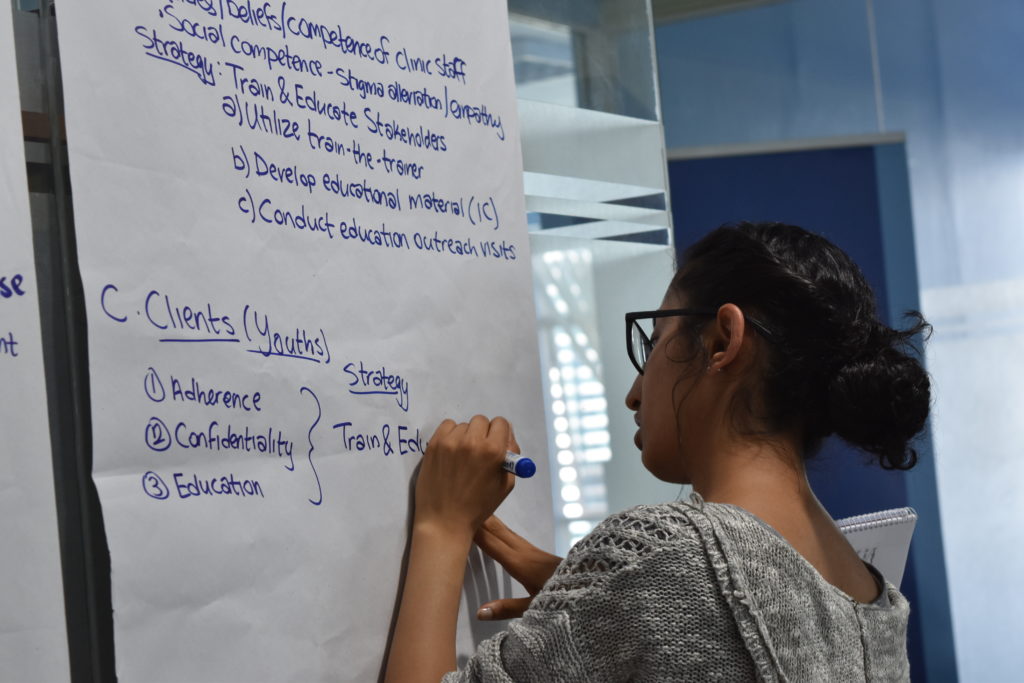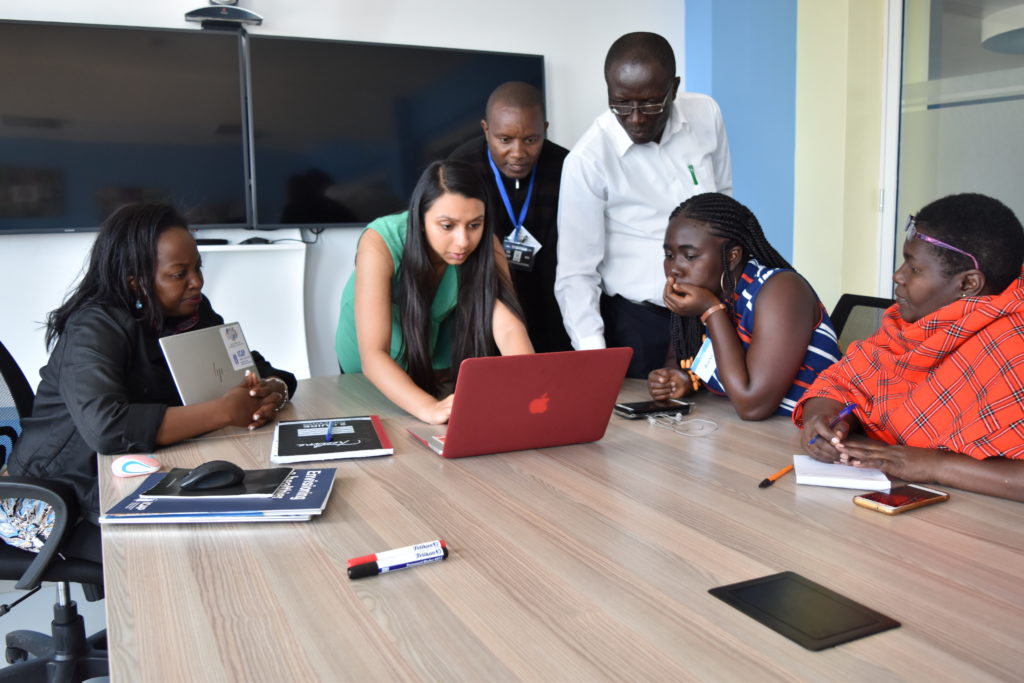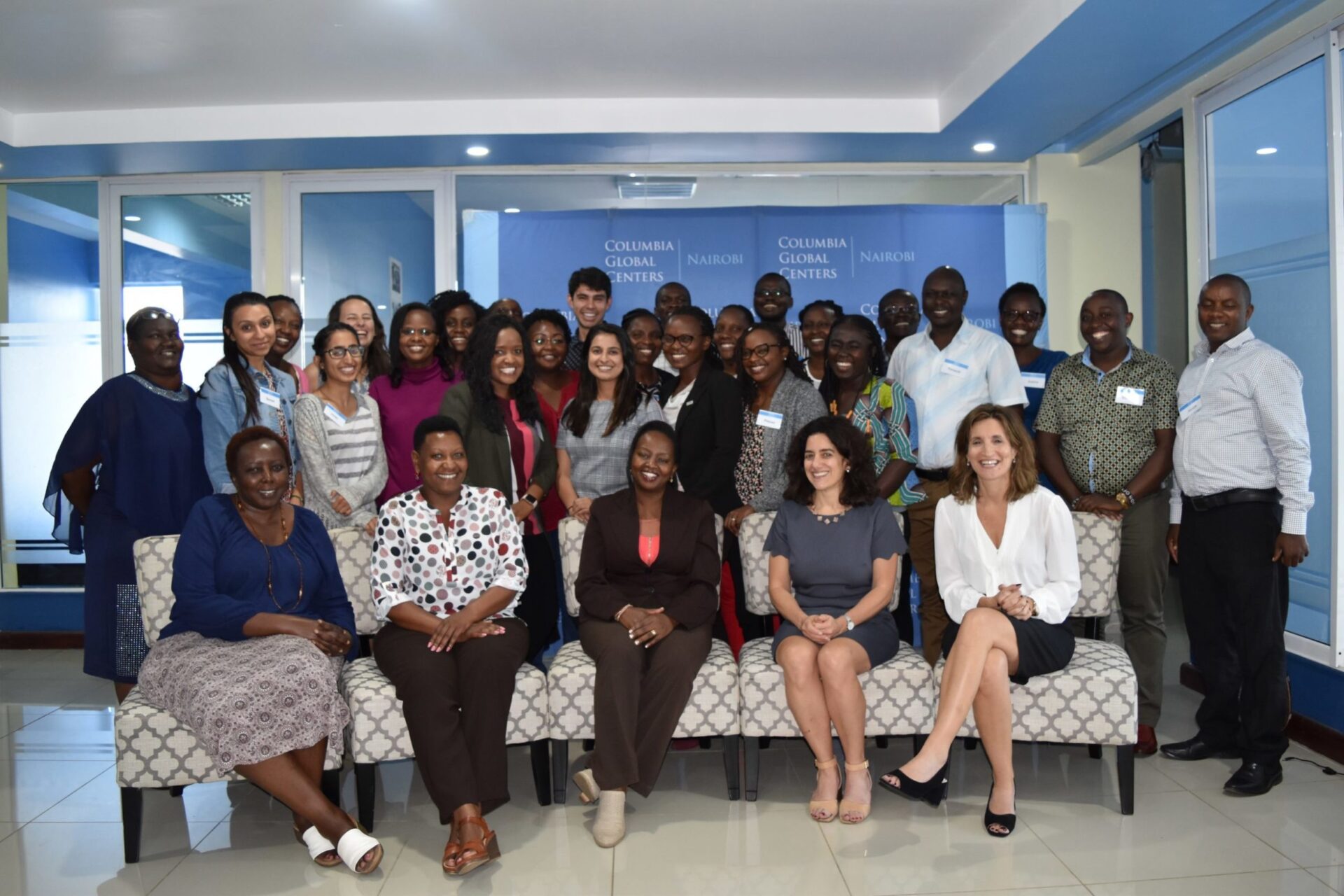Real life does not often line up with the parameters of controlled research, particularly in low-resource health settings. Interventions across a variety of disciplines—be it health, education, or more—are subject to change and setbacks, and are responsive to the complexities of communities and stakeholder preferences and feedback.
Efforts to negotiate these challenges have led to the emergence of a new, growing field of study known as “Implementation Science,” a field that examines the critical factors and conditions at play when promoting the uptake of evidence-based practices, interventions, and policies. Given ICAP’s long history in supporting large-scale, evidence-based health programs, the development of a training curriculum around implementation science was a natural progression in helping practitioners create and scale up programs that are not only functional, but sustainable.
With funding from the President’s Global Innovation Fund—an initiative of Columbia University President Lee C. Bollinger designed to support global opportunities for faculty research, service, and teaching projects—ICAP, in partnership with Columbia University’s Mailman School of Public Health, curated an educational program and hosted a five-day Implementation Science Institute at Columbia University’s Global Center in Nairobi, Kenya.
“The effective translation and uptake of research findings into practice is a major impediment in advancing global health,” said Andrea Howard, MD, MS, clinical and training unit director at ICAP, who led the development of the multi-day institute. “Public health practitioners can use implementation science to rigorously test strategies to improve the integration of evidence-based interventions into health care policy and practice, as well as to evaluate the impact and cost of bringing such interventions to scale.”
From November 18-22, 2019, the workshop brought together 26 students, including six master of public health candidates and two doctoral candidates from Columbia University Mailman School of Public Health, as well as 18 students from across Kenya, with varied academic and professional backgrounds across health and education, such as teaching, research, nursing, medical practice, and more. The students were welcomed by Mark Hawken, MD, MSc, ICAP’s country director in Kenya, and Murugi Ndirangu, PhD, MA, director of the Columbia Global Center in Nairobi, one of nine regional hubs for research and collaboration.
The institute participants learned from case studies such as “Human Centered Design,” taught by Trena Mukherjee, DrPH candidate, MPH, and lectures such as “Measurement Issues in Implementation Research,” taught by Ivy Mushamiri, PhD candidate, MPH, both recipients of ICAP’s Global HIV Implementation Science Research Training Fellowship.
Sessions aimed to equip participants with practical, hands-on skills to take projects to scale. Julie Kornfeld, PhD, MPH, vice dean for Education at Columbia Mailman School of Public Health led a presentation on “Implementation Strategies” and Joanne Mantell, MS, MSPH, PhD, professor of Clinical Psychology at Columbia University Irving Medical Center led a session on “Organizational Processes and Participatory Research.”

The five-day implementation science institute prioritized hands-on, collaborative skill building
Additionally, Harriet Nuwagaba-Biribonwoha, MD, PhD, ICAP’s research director in Eswatini led a session on mixed methods in implementation research and Mercy Mugo, senior lecturer, School of Economics, University of Nairobi, presented on the role of economic evaluation in implementation research, sharing with participants the importance of robust and detailed project follow-up.
Throughout the first four days, participants broke out into sessions and conducted group work, building their own implementation science proposals to address the “know-do” gap—the space between learning effective strategies and interventions and actually implementing them. On the last day, the groups presented their proposals and received feedback. Many found the sessions and collaborative group proposal to be helpful and relevant to their daily work.

Over the course of the workshop, participants broke out into groups to develop their own implementation science project proposals
“I was able to connect theory to practice and relate to my day to day work as I oversee research and program activities at my workplace and also my PhD research,” said one student when asked about the institute. “This was so relevant and timely to me.”
Given the wide applicability of implementation science and the success of the recent institute, there is great potential for the curriculum to expand beyond sector and region, and for new, dynamic tools to be created.
“There is tremendous demand for training in implementation science in the region,” said Howard. “The hands-on approach to the training institute was extremely well received. Participants were very engaged in the group work and it was very gratifying to see how over the course of the week, each multidisciplinary group worked collaboratively to develop a compelling implementation science proposal aimed at addressing a pressing ‘know-do gap.’”
Featured Image Caption: Julie Kornfeld, PhD, MPH, Columbia School of Public Health Vice Dean for Education (first from right, seated) and Andrea Howard, MD, MS, clinical and training unit director at ICAP (second from right, seated) conducted an implementation science workshop at Columbia’s Global Center in Nairobi with faculty and students from the Mailman School of Public Health.








